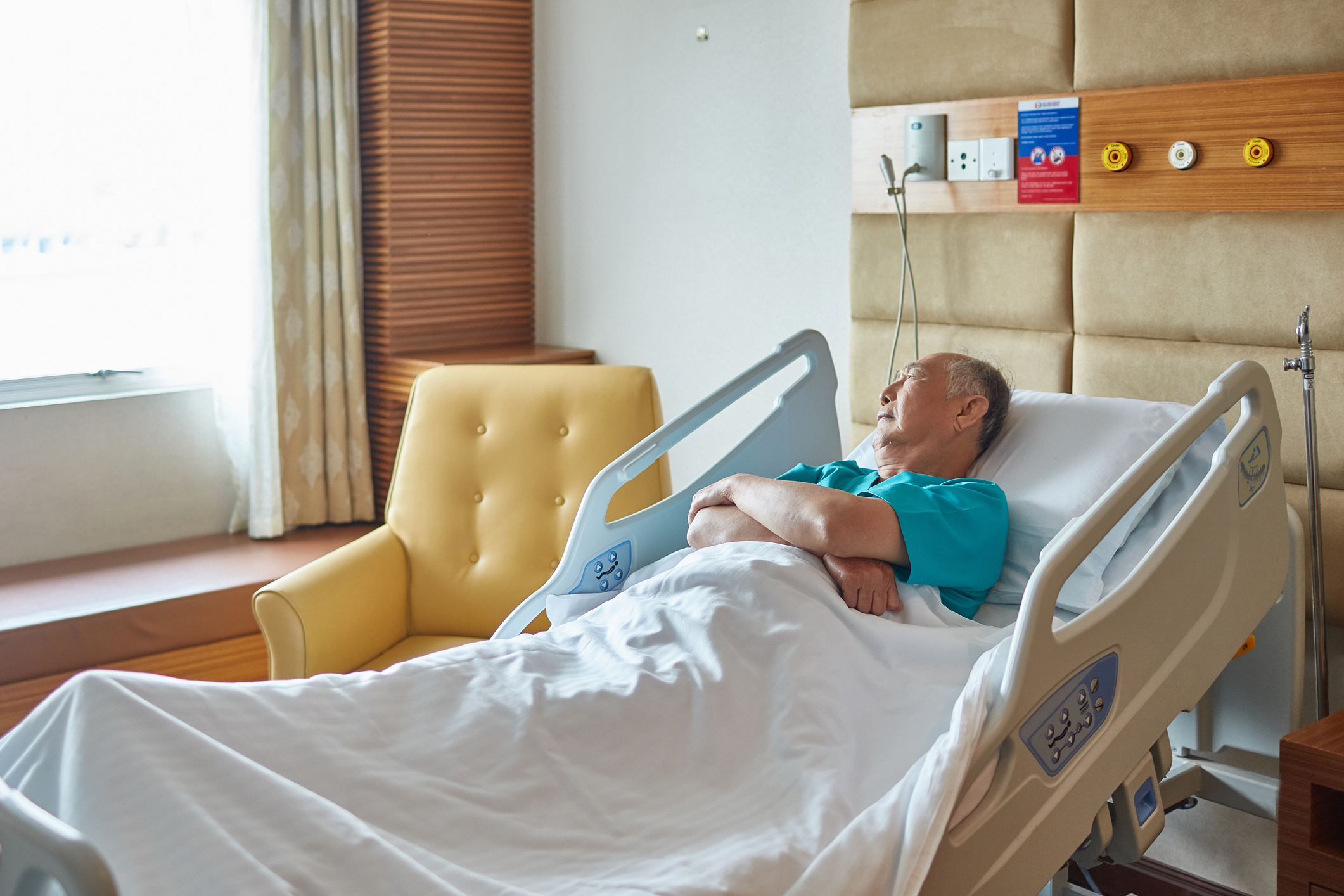
Hospitalization can bring a sudden onset of delirium in seniors.
A hospital stay is never something a senior looks forward to, but at least there is the reassuring fact that the necessary care and treatment are going to be delivered to provide healing. But what happens when the outcome isn’t as expected, and the older adult ends up with a new health concern? More and more often, a surprising condition is surfacing in conjunction with hospitalizations for older adults: a sudden onset of delirium.
Contact us online or call us at 618-667-8400 to learn how we can help seniors you love with transitional care after a hospital stay. Read on further to learn more about hospital delirium in seniors.
Coined “ICU psychosis” by geriatrician Sharon Inouye of Harvard Medical School, hospital delirium is both “underrecognized and underdiagnosed.” And possibly even more concerning, in as many as 40% of the cases, the condition is preventable in seniors. It’s believed to be caused by the bright, active atmosphere that renders sleeping difficult, or by a specific kind of medication a senior loved one has been given, such as an anti-anxiety or a narcotic prescription.
Research studies are revealing that the longer a senior stays in the hospital, the higher chance she or he will develop hospital delirium. And the impact may be both severe and long-lasting. An astounding eight out of ten adult ICU patients exhibited markedly lower cognitive test outcomes than normal (according to age and education predictions), in spite of the fact that only six percent had any cognitive impairment prior to the hospitalization. Not only that, but well over 2/3 of the patients showed a level of impairment that would be expected in an individual with mild dementia or even a TBI.
It is not realistic to simply avoid hospitalizations for seniors, so what is the best way to manage this growing concern? One particular solution is a program called HELP, Inouye’s Hospital Elder Life Program. It is currently offered in 200 hospitals throughout the U.S. and is making strides in preventing a sudden onset of delirium during hospitalization through visits from trained volunteers who offer assistance to help seniors stay oriented.
Inouye is also utilizing the CAM scale (Confusion Assessment Method) to help measure understanding of potential delirium, and is working to promote alternative methods to address anxiety – such as the comfort of a companion in place of strong anti-anxiety medications.
Morning Glory Home Care, a respected provider of award-winning home health care in O’Fallon, IL and the surrounding communities, is also here to help out in numerous ways. Our experienced home care team can:
- Offer pleasant companionship
- Provide medication reminders
- Prevent falls in the home
- Pick up groceries and cook healthy meals
- And much more
Our home care services will help older adults avoid the re-hospitalizations that can bring about hospital delirium. When a hospital visit is needed, however, we can help older adults transition back safely and comfortably to home and keep a close eye on their condition.
Email or call us today at 618-667-8400 for a free in-home consultation to learn more information on our home health care in O’Fallon, IL and the surrounding areas, and how we are able to improve health outcomes for a senior you love.
